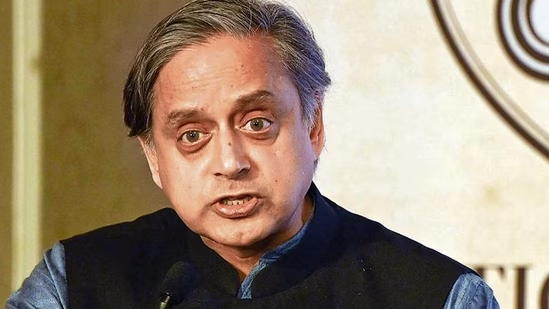
Congress
In a powerful and pointed response to critics within his own party, senior Congress leader and Member of Parliament Shashi Tharoor has stirred fresh debate by quoting India’s first Prime Minister Jawaharlal Nehru: “Who lives if India dies?” The remark came as Tharoor faced criticism from sections of the Congress for adopting what many interpreted as a cross-party cooperative stance on key national issues.
As political discourse in India grows more polarized, Tharoor’s comment has added depth to the ongoing debate about ideological purity, party loyalty, and national interest—a subject that continues to divide even the oldest political institutions in the country.
The Context: Cross-Party Cooperation or Compromise?
Tharoor, known for his articulate and often independent views, has recently participated in forums and panels alongside leaders from rival parties, drawing both praise and sharp criticism. While some appreciate his inclusive and democratic approach, others within the Congress feel it undermines the party’s opposition role against the BJP-led central government.
The backlash intensified when Tharoor supported bipartisan dialogue on national priorities, including foreign policy, education reforms, and digital governance. Critics argued that such collaboration could be perceived as softening the opposition stance or “normalizing” the ruling party’s policies.
Responding to these criticisms, Tharoor invoked Nehru’s iconic quote—“Who lives if India dies?”—to make it clear that his first allegiance is not to party lines but to India’s democratic and constitutional fabric.
Tharoor’s Stand: Nation Over Politics
In his characteristic eloquence, Tharoor elaborated, “My commitment is first and foremost to the idea of India—its democracy, its pluralism, and its constitutional values. When the nation’s integrity and long-term future are at stake, we cannot afford to be prisoners of political boundaries.”
He argued that healthy democracies thrive on dialogue, even among ideological opponents, and that personal attacks or rigid partisanship only weaken the political ecosystem. “We must oppose what’s wrong with full force, but we must also collaborate where interests of the nation align,” he added.
Congress Divided: Supporters and Critics
Tharoor’s statement has once again highlighted the ideological tension within the Congress party—between traditionalists who believe in a confrontational, uncompromising opposition, and reformists who advocate for dialogue and adaptability.
Some senior Congress leaders came to Tharoor’s defense, calling his view both mature and necessary in today’s complex political landscape.
“Shashi is not breaking ranks; he is broadening horizons,” said a Congress MP from Kerala. “We can’t afford to be seen as negative or obstructionist on every issue. There must be space for policy-based cooperation without compromising on our core ideology.”
However, critics within the party argue that this flexibility sends mixed signals to voters and could dilute the party’s positioning as a credible alternative to the ruling regime.
Public and Political Reaction
Social media erupted with diverse reactions to Tharoor’s Nehru reference. While many citizens applauded the sentiment behind the quote, interpreting it as a call to prioritize nation above partisanship, others accused Tharoor of grandstanding or trying to appease both sides.
Supporters of the BJP were quick to capitalize on the statement, using it as evidence of “Congress confusion,” while some opposition allies admired Tharoor’s courage in breaking echo chambers.
Political analysts point out that Tharoor’s approach mirrors global democratic practices, where opposition and ruling parties often collaborate on common national goals, especially in matters of foreign policy, security, and climate change.
A Larger Question: What Should Opposition Look Like?
Tharoor’s remarks have reignited a larger debate about the role of opposition in a democracy. Is it to constantly oppose and resist, or to selectively cooperate for national interest while keeping ideological differences intact?
In today’s India, where political divisions are deep and discourse is increasingly combative, Tharoor’s call for “disagreeing without being disagreeable” offers a compelling perspective.
Quoting Nehru was not just a rhetorical flourish—it was a reminder of a time when patriotism and politics were not mutually exclusive, and when national unity did not require uniformity.
Conclusion
In choosing to quote Nehru—“Who lives if India dies?”—Shashi Tharoor has once again positioned himself as a thoughtful statesman in a time of political turbulence. His message is clear: while party loyalty is important, the nation’s future must take precedence.
As the Congress grapples with questions of strategy, identity, and direction, voices like Tharoor’s challenge it to evolve, adapt, and engage—not just to oppose, but to propose. And in doing so, perhaps the party—and the country—can rediscover the spirit of constructive democracy that Nehru once envisioned.
Thanks For Reading